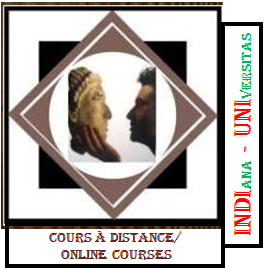Samoa hosts Lapita Pacific Achaeological meet
Caroline Tiriman
Source - http://www.radioaustralia.net.au/pacbeat/stories/201107/s3260719.htm
The Samoan capital, Apia last week hosted a major Lapita Pacific Archaeological meeting which brought together International and regional experts to look at Archeology in the Pacific.
The theme of this year's forum is 'Pacific Archaeology: Documenting the past 50 000 years to the present.'
Lapita is the story of how the first people arrived and settled in the Pacific between 1200 and 1000 BC moving from Melanesia to the Western Pacific including Polynesia, to countries countries like Tonga and Samoa.

For more on the conference, Caroline Tiriman spoke with one of the participants, Janet Davidson, an archaeologist from New Zealand who has done archaeological studies in Samoa in the past.
DAVIDSON: Well it's about the archaeology of the whole Pacific really, but particularly the island part of the Pacific. It's just about PNG, but there are many papers about New Caledonia, Vanuatu. Fiji, Samoa and Tonga particularly. They're presenting recent results from a whole lot of scholars around the world really from Australia, New Zealand, from the indigenous countries, we hear from the UK and the United States recent research into the past history of the Pacific people and it's really exciting because there are some terrific new findings coming out.
TIRIMAN: During this conference, there have been some comments that there are not enough Pacific Islander experts at this meeting. Does this mean that this is not may be of interest?
DAVIDSON: It's not that I don't think, it's that it's hard for Pacific Island people to train in archaeology. For the most part, they have to go overseas to train, but it's changing very much. There have been extraordinarily good presentation from a man from Vanuatu about the work that has been done there in taking archaeology out to the schoolchildren, out to people and so on and but the most exciting thing for me is that the whole conference has been run by the Institute for Samoan Studies here in independent Samoa where they actually have a course now for two years undergraduate students can actually study archaeology and they're hoping to take it to the third year, so that they can have a major BA in archaeology and there are all these Samoan students here who are really enthusiastic and excited about this, the opportunity to meet archaeologists they've heard about who've gathered here. There are also indigenous people here from Solomon Islands, from New Caledonia, so it's changing. It was for a long time, it seemed to be Palangis who were coming in and doing, studying people's past and going away again. But now it's changing very much so that the local people are very much more involved and very excited about it, but that's absolutely fantastic.
TIRIMAN: Why is it important for Pacific Islanders to know more about their past in terms of archaeology?
DAVIDSON: Well, people have thought that their own traditions are there past and that has always been and continues to be really important. But the archaeological research enables them to see perhaps their culture in a world context, rather than just a Pacific context, because there is exciting information about the way that the Pacific Islands were settled and the development of big monuments, great stone mounds and so on, which is important in a world context. Archaeologists everywhere else in the world are interested in how people settled the Pacific and how they develop their distinctive modern cultures and this parallels the traditions and stories that the people themselves have always had. It provides a different look at the past. It adds to what people knew already and it's sometimes this archaeological findings catch the imagination's of people in Finland or Japan or wherever rather than the peoples own stories about their past.
TIRIMAN: This conference is called the Lapita Archaeology meeting, but this Lapita is like a thread that runs through the Pacific, isn't it?
DAVIDSON: Yes, there have been Lapita conferences for many years, every three or four years there has been a Lapita conference and this one is also called a Lapita conference, because we don't have any other general gathering for archaeologists working in the Pacific, apart from some Easter Island conferences which also happen. So Lapita is the fundamental reason for the conference and we've had some very exciting presentations from people, particularly from Vanuatu, but also really brilliant summary of the Lapita findings in Tonga.
The Lapita people as we call them were the first people to sail beyond the big islands of the Solomons out through Vanuatu, New Caledonia, to Fiji, Tonga and Samoa, so the Lapita section of our conference is all about those people. But because there's so much else happening, we've had some very interesting presentations about other aspects of Pacific archaeology. Lapita is the foundation, but then we're also looking at what happened after Lapita.